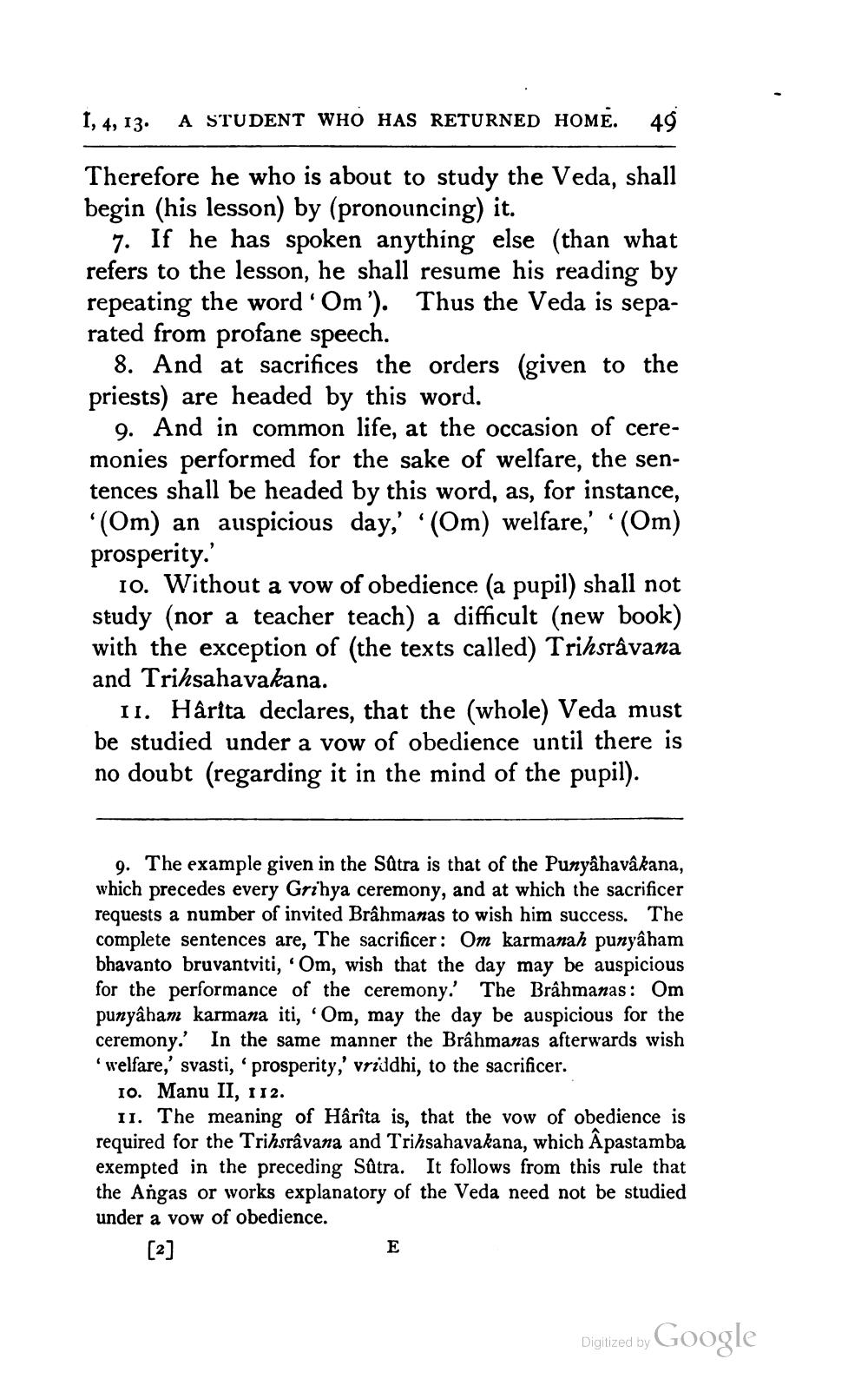________________
I, 4, 13.
Therefore he who is about to study the Veda, shall begin (his lesson) by (pronouncing) it.
7. If he has spoken anything else (than what refers to the lesson, he shall resume his reading by repeating the word 'Om'). Thus the Veda is separated from profane speech.
A STUDENT WHO HAS RETURNED HOME. 49
8. And at sacrifices the orders (given to the priests) are headed by this word.
9. And in common life, at the occasion of ceremonies performed for the sake of welfare, the sentences shall be headed by this word, as, for instance, '(Om) an auspicious day,' '(Om) welfare,' (Om) prosperity.'
(
10. Without a vow of obedience (a pupil) shall not study (nor a teacher teach) a difficult (new book) with the exception of (the texts called) Trihsrâvana and Trihsahavakana.
II. Hârita declares, that the (whole) Veda must be studied under a vow of obedience until there is no doubt (regarding it in the mind of the pupil).
9. The example given in the Sûtra is that of the Punyâhavâkana, which precedes every Grihya ceremony, and at which the sacrificer requests a number of invited Brâhmanas to wish him success. The complete sentences are, The sacrificer: Om karmanah punyâham bhavanto bruvantviti, 'Om, wish that the day may be auspicious for the performance of the ceremony.' The Brâhmanas: Om punyâham karmana iti, 'Om, may the day be auspicious for the ceremony.' In the same manner the Brâhmanas afterwards wish welfare,' svasti, 'prosperity,' vriddhi, to the sacrificer.
10. Manu II, 112.
11. The meaning of Hârîta is, that the vow of obedience is required for the Trihsrâvana and Trihsahavakana, which Âpastamba exempted in the preceding Sûtra. It follows from this rule that the Angas or works explanatory of the Veda need not be studied under a vow of obedience.
[2]
E
Google
Digitized by




